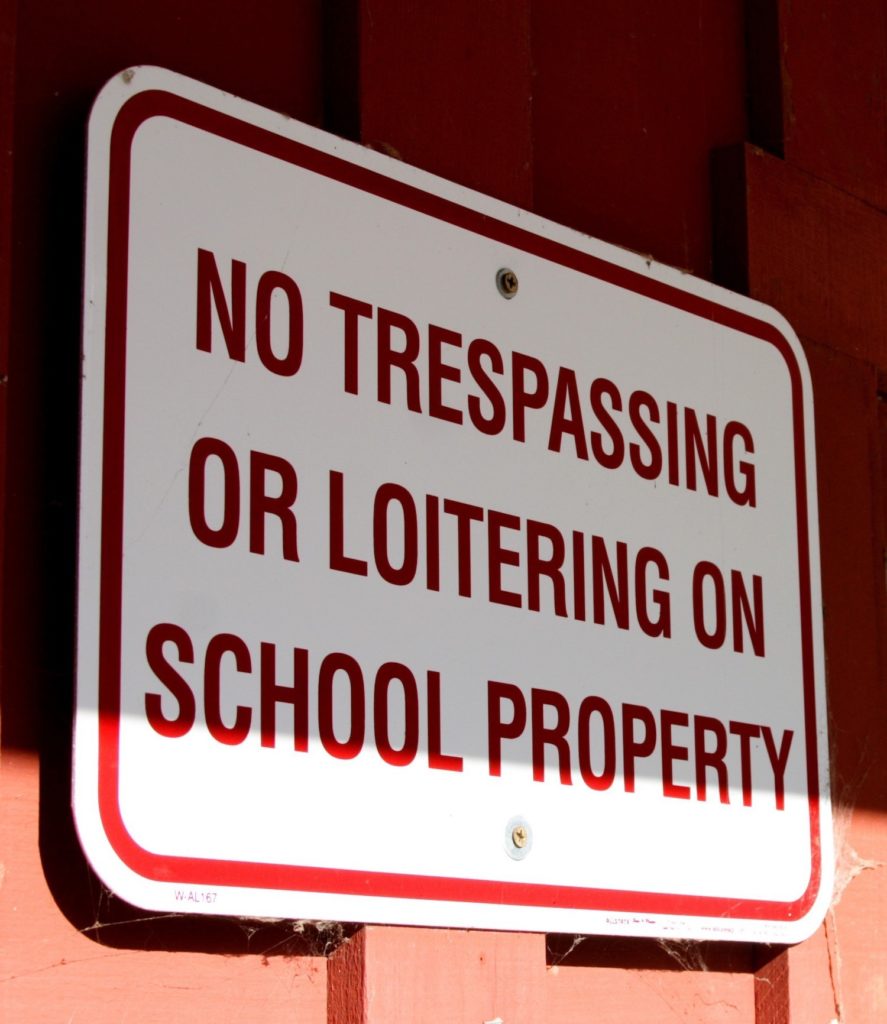Three situations that qualify as illegal loitering in Nevada are
- people hanging out in locations where children gather,
- people under 21 remaining in casino areas, and
- people being in or near public restrooms to solicit sex or break the law.
Loitering is a misdemeanor offense, punishable by:
- up to 6 months in jail and/or
- up to $1,000 in fines.
But it is rare for judges to impose jail on a first-time offense. And it may be possible to get the charges dismissed so that no conviction goes on the defendant’s criminal record.
1. Schools or children-gathering places
NRS 207.270 makes it a misdemeanor to loiter near the following locations where children gather:
- schools
- parks
- playgrounds
- swimming pools
- children community centers
- daycare centers
The purpose of this law is to protect children from pedophiles and other people who mean to do children harm.
Common defenses to NRS 207.270 charges include:
- The defendant had a legitimate reason to be there, such as a babysitter supervising kids in his/her care.
- The defendant was just passing by and was not loitering.
- The location is not a place where children normally congregate.
Learn more about the Nevada offense of loitering near a school (NRS 207.270).
2. Underage people at casinos
NRS 463.350 prohibits people under 21 years of age from loitering in a casino or any place where licensed gaming takes place. In practice, minors are allowed inside Nevada’s casinos: They cannot linger near any of the
- slot machines,
- gaming tables, or
- sportsbooks.
Potential defenses to NRS 463.350 charges include:
- The defendant was not underage.
- The defendant was not loitering and instead was just walking by the gaming area.
- The defendant was far away from the gaming area, such as in a restaurant.
Also see our article, What happens to a minor caught gambling at a Las Vegas casino?

Many behaviors qualify as loitering in Nevada.
3. Public restrooms
NRS 207.030 makes it a vagrancy offense for people to loiter in or near a public restroom to either:
- engage in or solicit sexual favors, or
- commit an unlawful act
Police frequently set up undercover stings in public restrooms in an attempt to catch would-be prostitutes and johns. Officers dress up in plain clothes and pretend to solicit sexual favors. If the suspect agrees, the officer breaks cover and arrests the suspect. Police are allowed to engage in deceptive practices as long as they do not force or threaten the suspect into breaking the law.
Potential defenses to NRS 207.030 charges include:
- The defendant was using the restroom for its intended purpose.
- The defendant was not engaging in solicitation, sexual acts, or any other unlawful act.
- The defendant was just passing through and was not loitering there.
- The police committed misconduct, such as entrapping the defendant or coercing a confession.
Also see our article about Nevada vagrancy laws.
Penalties and record seals
Loitering is prosecuted as a misdemeanor offense in Nevada. The punishment carries:
- Up to 6 months in jail, and/or
- Up to $1,000 in fines
It is rare for courts to impose jail time for a first-time offense. In many cases, prosecutors may be willing to dismiss a first-time charge in exchange for a fine.
A conviction must remain on the defendant’s record for a full year. At that point, the defendant can petition the court for a record seal. But if the charge gets dismissed, then the defendant can petition for a record seal immediately.


